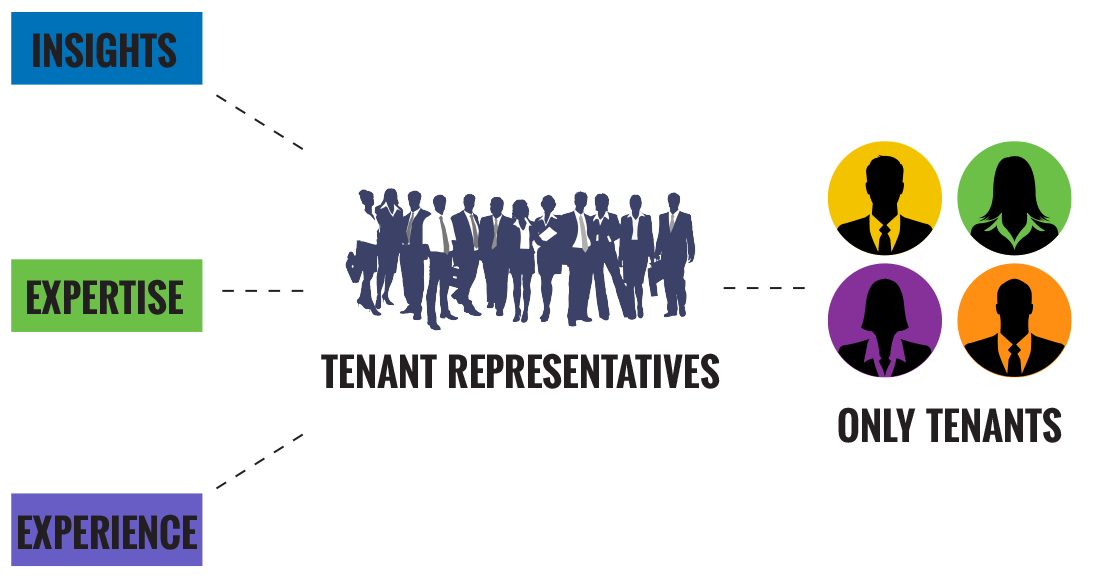All real estate professionals try to be unbiased and equitable representatives. However, inherent human bias, coupled with complexities in the real estate industry, make it nearly impossible to resolve all conflicts of interest in a commercial real estate firm that represents both landlords and tenants.
Tenant representatives represent only the users of space in a transaction, giving tenants a bias-free advocate to help them reach the best outcome.
Why tenants should utilize a tenant-only representative
#1 Commercial real estate professionals face inherent conflicts of interest when representing both the landlord and tenant in a real estate transaction.
Studies have shown that conflicts exist in commercial real estate — an unsurprising fact when you consider that every person has inherent, often unconscious, biases. In this regard, real estate professionals who work in the commercial real estate business are no different than any other service provider, or to that point, the landlords or tenants they represent.
Brokers representing both sides cannot have singularly focused fiduciary responsibility. Even with strong disclosure practices and the highest level of integrity, the best a real estate consultant advocating for both sides can do is meet in the middle, not necessarily gaining the best outcome for either party.
#2 The relationship between landlords and tenants is fundamentally adversarial.
Landlords and tenants have conflicting objectives. Landlords want the highest rent the space can command in the marketplace. It is also in their best interest to shift as many of the operational responsibilities and liabilities to their tenants. Conversely, tenants want the exact opposite: the lowest rent possible, with as many of the obligations falling onto the landlord without additional charges.
The legal professional recognizes the inherent conflict of representing the plaintiff and defendant at the same time, so how can those parties’ divergent interests be adequately represented by the same firm in a real estate transaction?
#3 Lack of market transparency puts tenants at a disadvantage.
Unlike other U.S. markets, such as the residential real estate market and capital markets, the U.S. commercial leasing market lacks transparency and equal access to the same level of information by all parties. Many tenants rely almost exclusively on their real estate consultants for accurate information about the commercial leasing market. However, some property information available to firms who represent landlords may be withheld to protect the landlords’ interests.
Without transparently communicated, up-to-date market data in the target market area, tenants cannot comprehensively compare options and are left at a disadvantage.

Objectivity: A tenant’s advantage
Real estate professionals are best able to represent tenants and offer advice if they do not have competing objectives from representing products or services of another firm, investor, approach, or outcome. This leaves the tenant rep able to uncover a full range of perspectives and present unbiased facts, allowing tenants to make a fully informed decision with every option in mind.
Plante Moran Cresa’s choice is to serve users of space, not to represent the products or services of any landlord, developer, architectural firm, construction company, or related vendor. We know this gives us a marked advantage in serving our clients. We can confidently guarantee that we are always 100 percent on their side, completely objective and conflict-free.




